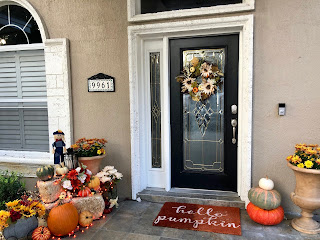Let's talk about short sales. If you're house hunting, you've probably seen this term pop up and wondered if it might be your ticket to a great deal. But before you dive in, you should know what you're getting into.
First, what exactly is a short sale? It's when a homeowner sells their house for less than they owe on their mortgage, with the bank's permission. For example, if someone owes $300,000 on their mortgage but can only sell their house for $250,000, that's a short sale.
The Good Stuff
The biggest draw is pretty obvious: the price. You can often get a property below market value because the bank is trying to avoid a costly foreclosure. These discounts can be significant – sometimes 10% to 20% below market value.
Another important consideration: While we mentioned these homes can be in better shape than foreclosures, that's not always the case. Many short sale properties have deferred maintenance issues because the owners who fell behind on mortgage payments often couldn't afford proper upkeep either. You might find issues like outdated HVAC systems, worn-out appliances, or neglected yard maintenance. This makes that thorough inspection even more crucial – you need to know exactly what you're getting into and budget accordingly.
Another plus? You're dealing with a real person (the current homeowner), not a bank's REO department. This can make the inspection process smoother and give you better access to information about the property's history.
The Not-So-Good Stuff
Now for the reality check – and it's a big one. That amazing deal you're hoping for? It might not be so amazing after all, and you could waste months of your life finding that out.
Short sales can be painfully slow. The term "short" refers to the bank taking a loss, not the timeline. You might wait 3-6 months (or even longer) for an answer on your offer because the bank, the seller, and sometimes multiple lien-holders all need to approve the deal. During this time, you're stuck in limbo – can't make firm plans to move, might miss out on other properties, and you're spending money on inspections with no guarantee of success.
Speaking of wasted money – you'll need to pay for inspections upfront, often before knowing if the bank will even accept your offer. If the deal falls through (and many do), that's money you won't get back. You could easily spend $500-1,000 on inspections and walk away empty-handed.
The paperwork is intense. You'll need patience and a strong stomach for bureaucracy. Banks often have their own lengthy forms and processes, and they're not known for moving quickly. Each round of negotiations can add weeks or months to the process.
Here's something that surprises many buyers: You might not get as good a deal as you expect. Banks aren't stupid – they do their homework on property values. If your offer is too low, they'll reject it, no matter how much the seller wants to accept. You could wait months only to find out the bank won't budge on price, putting you right back at square one.
You'll also need to buy the home "as-is" in most cases. While you can (and should) get an inspection, the bank probably won't pay for repairs. That perfect-looking house might need a new roof, and that cost is on you.
Another important consideration: While these homes can sometimes be in better shape than foreclosures, that's not always the case. Many short sale properties have deferred maintenance issues because the owners who fell behind on mortgage payments often couldn't afford proper upkeep either. You might find issues like outdated HVAC systems, worn-out appliances, or neglected yard maintenance. This makes that thorough inspection even more crucial – you need to know exactly what you're getting into and budget accordingly.
If you're still interested in pursuing a short sale, here's how to improve your chances of success:
Get pre-approved for a mortgage. Cash offers are even better. Banks love certainty, and a strong financial position makes you more attractive.
Work with professionals who know short sales. Find a real estate agent and a lawyer who have done this before. Their experience can be invaluable in navigating the process.
Do your homework. Get a thorough inspection and research the property's value. Know your maximum price and stick to it. Factor in repair costs when making your offer.
The Bottom Line
Short sales can be a good way to get a deal on a house, but they're not for everyone. If you need to move quickly or don't have the patience for a lengthy, uncertain process, you might want to stick with traditional sales. But if you've got time, patience, and a good team behind you, a short sale could be your path to homeownership at a discount.
Just remember: "short" sale is one of real estate's great ironies. There's nothing short about it except the bank's end of the deal.








